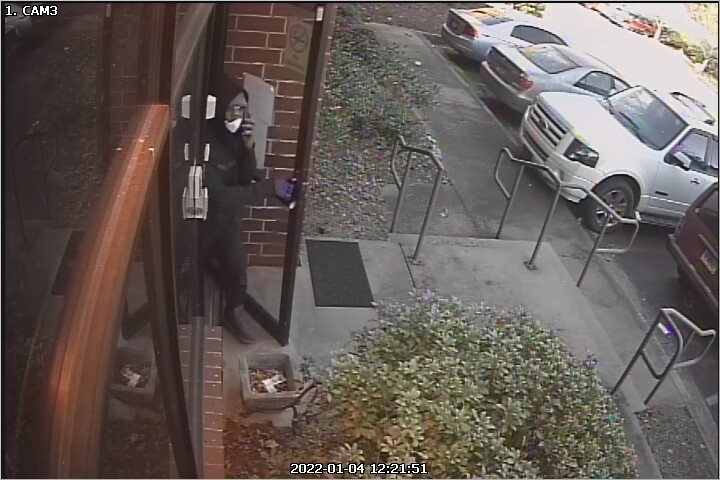The Silent Takeover: How Corporate Investors Are Coming For Fayette County’s Housing Market
The “For Rent” sign on a suburban lawn used to tell a familiar story. Maybe the owners had moved but decided to keep their old house. Maybe it belonged to a local investor with a few properties. The landlord likely lived nearby, understood the neighborhood, and saw the home as more than just an entry on a balance sheet.
That story is changing.
Today, that same house is more likely owned by a private equity firm held through a numbered LLC and registered to a P.O. Box in Dallas, Scottsdale, or Los Angeles. From the street, it may look no different. But the ownership has shifted.
How We Got Here
This shift in ownership did not happen overnight. It is the result of a national housing shortage that has been building for more than a decade.
As of 2023, the United States was estimated to be short by about 6.5 million homes. That gap opened after the 2008 financial crisis, when homebuilders sharply reduced new construction and never fully caught up. Zoning restrictions and high construction costs have all contributed to the shortage.
As supply has failed to meet demand, prices have surged, especially in suburban communities. In Peachtree City, for example, home values have more than doubled over the past ten years, rising at an average annual rate of about 7.6%. As of May 2025, the median home price ranged from$561,500 to $617,000, depending on the source.
These rising costs have opened the door for institutional investors. As wages stagnated, firms purchased existing single-family homes and turning them into rentals.
Once acquired, the homes are added to large rental portfolios and then bundled into investment products. Blackstone’s Invitation Homes pioneered this in 2013 by creating bonds backed by rental payments. By 2015, many firms were issuing large bond deals that treat houses as financial assets that are then traded in national and global markets for profit.
The Atlanta Area Is “Ground Zero”
The concentration of corporate ownership in some metro Atlanta markets is striking. In Fulton, Clayton, DeKalb, Gwinnett, and Cobb counties, just three companies – Invitation Homes, Pretium Partners, and Amherst – own nearly 19,000 single-family homes. According to research by Georgia State University and Rutgers University, that equated to about 11% of all single-family rentals in those counties as of 2022. Other reports put corporate ownership as high as 25% of single-family rental homes for our metro area.
The true number is hard to pin down by design. These firms operate behind a deliberately complex web of more than 190 LLCs spread across ten states and even overseas territories. But whatever the real number is, Atlanta is far above the national average. In 2022, institutional investors owned between 2% to 3% of the roughly 20 million single-family rental homes in the United States.
This Ownership Shift Is Approaching Fayette County
According to the Atlanta Regional Commission, Fayette County’s corporate ownership remains smaller than neighboring counties at 1.3%. A market analysis in late 2024 noted that Fayette’s lower share of institutional ownership may stem from having had fewer foreclosures after the 2008 crash. Heading into 2009, Fayette County had the fewest foreclosure notices in metro Atlanta with only 1,853.
However, institutional ownership is steadily increasing across the county. Property records confirm that large corporate investors have acquired homes using LLCs that often obscure the true ownership. For example, entities like HPA Borrower 2016-1 LLC (affiliated with Home Partners of America) and AH4R Properties Two LLC (affiliated with American Homes 4 Rent) currently own multiple properties in Fayette County.
How This Shift Could Impact Our Community
When an institutional investor buys a home, it does more than change who holds the deed. It affects how that home is used, how it’s cared for, and how it benefits people.
One of the clearest impacts is cost. Large landlords tend to charge more in rent and are more likely to tack on fees. For example, Progress Residential charges a $55 application fee per adult and a $125 lease administration fee at move-in. Tenants can also be billed a 2.95% convenience fee for paying rent with a credit card, or up to $9.95 for paying by phone. While these may seem small, they add up, and some renters report additional fees that seem arbitrary. One former tenant detailed how Progress tacked on a $300 pet deposit, a $35 monthly pet fee, an $18 smart-home fee, and a $100 charge just to remove a co-signer from the lease.
Besides the costs, this shift also affects who can buy. These firms usually pay in cash and move quickly. For a traditional homebuyer using a mortgage, especially a first-time buyer, it is hard to compete. The result is that more homes go straight from the market into a rental portfolio. People trying to buy for the first time lose out, and the homes they might have purchased end up being rented back to them or to someone else at a price set by a distant firm.
This shift affects neighborhoods as well. A street full of owner-occupied homes often looks and feels different than one where a large share are rentals owned by out-of-state companies. Turnover tends to be higher. Neighbors may not know one another. Local schools and civic organizations, which rely on long-term community ties, can lose out. Renters also have fewer ways to hold landlords accountable when those landlords are based in another state and own dozens or hundreds of properties in the area.
This is also about power. If your landlord is slow to make repairs or raises the rent, your options may be limited. The other homes on your street may be owned by the same company, just under a different name. The lease may include clauses that favor the owner with limited protections for renters. And when problems arise, tenants are often routed to a phone tree instead of someone who lives nearby and knows the community.
Finally, this shift has long-term effects on wealth and opportunity. For decades, owning a home has been one of the most reliable ways for families to build equity and pass something down. But when a home becomes a permanent rental held in a portfolio, that opportunity disappears. Every home bought by a corporate landlord is one less home a local family could own to build generational wealth.
What Can We Do?
When I first wrote about the housing crisis last year, I asked if and how we wanted to evolve our community. Those questions feel more urgent than ever.
As corporate landlords continue to acquire homes across Fayette County, we have to ask what kind of future we are building. Who is it for, and who gets left out?
Renting itself is not the issue. Many of us have rented at different points in our lives. But something has changed. Homes are no longer just places to live. They are increasingly being treated like investment vehicles, bought and held by out-of-state companies that have no relationship to the neighborhoods where they operate. Their goal is not stability or community. It is return on investment.
In a county like Fayette, where families put down roots and our community thrives on long-term residency, that shift matters. It changes how people move in, how they engage, and whether they stay. If more people are going to rent, we need policies that protect them. If homeownership remains a goal, we need to make it achievable again. And if we care about preserving what makes our communities strong, we need to be honest about what happens when that vision is tested. Not just by new development, but by new owners who are not neighbors at all.
Lawmakers have started to respond. In 2025, the Georgia General Assembly passed House Bill 399. If your landlord is an LLC based in another state, they now must have someone in Georgia who can be reached when the grass goes uncut or the house falls into disrepair.
Larger reforms at the state level have faced greater resistance. A bill that would have capped how many homes a single company could own in one Georgia county failed after intense lobbying by the real estate industry. One version proposed a 25-home limit, aimed at preventing any one firm from dominating a local housing market. But the bill stalled after former state Attorney General Sam Olens testified on behalf of the corporate landlord industry, calling it a potential overreach.
At the federal level, U.S. Senator Jon Ossoff has launched an investigationinto corporate landlord practices across Georgia, including right here in metro Atlanta. His office has asked for data from major firms on how many homes they own, what fees they charge, and how often they evict tenants. He is also looking into whether these companies receive early access to listings before homes are made available to the public.
Locally, housing policy in Fayette County has focused more on managing growth through zoning than on the ownership structure of existing homes. That approach does not directly address corporate ownership of single-family homes.
Still, there are steps we can take. Local governments can enforce property maintenance rules to hold absentee landlords accountable. Even without a formal landlord registry, which state law currently prohibits, they can use deed filings and tax records to track ownership patterns. They can also shape zoning rules that promote homeownership like allowing smaller lots for starter homes or requiring a share of new developments to be owner-occupied.
Civic organizations and neighborhood groups also have a role. They can help renters feel connected and informed. They can push for stronger code enforcement when homes fall into disrepair. And they can be a watchdog when they see homes being scooped up in bulk by a handful of companies.
Residents have power too. They can ask questions at public meetings. They can support policies that expand access to ownership like down payment assistance. They can speak up when they see homes in their neighborhood quietly shifting into rental portfolios. Just as importantly, they can share their own stories. If you have faced rising rents, distant landlords, or fees that felt unfair, your experience can shape the public conversation. Send it to The Citizen at [email protected].
We also have an election coming up this November. That gives us a chance to ask our local candidates where they stand. Do they believe Fayette County should respond to the rise of corporate landlords? If so, how? Will they push for stronger code enforcement, new tools to track bulk ownership, or policies that make homeownership more accessible?
This issue is not theoretical. It affects real neighborhoods, real families, and the long-term health of our communities.
We should engage with it directly.
You may also like...
Diddy's Legal Troubles & Racketeering Trial

Music mogul Sean 'Diddy' Combs was acquitted of sex trafficking and racketeering charges but convicted on transportation...
Thomas Partey Faces Rape & Sexual Assault Charges

Former Arsenal midfielder Thomas Partey has been formally charged with multiple counts of rape and sexual assault by UK ...
Nigeria Universities Changes Admission Policies

JAMB has clarified its admission policies, rectifying a student's status, reiterating the necessity of its Central Admis...
Ghana's Economic Reforms & Gold Sector Initiatives

Ghana is undertaking a comprehensive economic overhaul with President John Dramani Mahama's 24-Hour Economy and Accelera...
WAFCON 2024 African Women's Football Tournament

The 2024 Women's Africa Cup of Nations opened with thrilling matches, seeing Nigeria's Super Falcons secure a dominant 3...
Emergence & Dynamics of Nigeria's ADC Coalition

A new opposition coalition, led by the African Democratic Congress (ADC), is emerging to challenge President Bola Ahmed ...
Demise of Olubadan of Ibadanland
Oba Owolabi Olakulehin, the 43rd Olubadan of Ibadanland, has died at 90, concluding a life of distinguished service in t...
Death of Nigerian Goalkeeping Legend Peter Rufai

Nigerian football mourns the death of legendary Super Eagles goalkeeper Peter Rufai, who passed away at 61. Known as 'Do...




